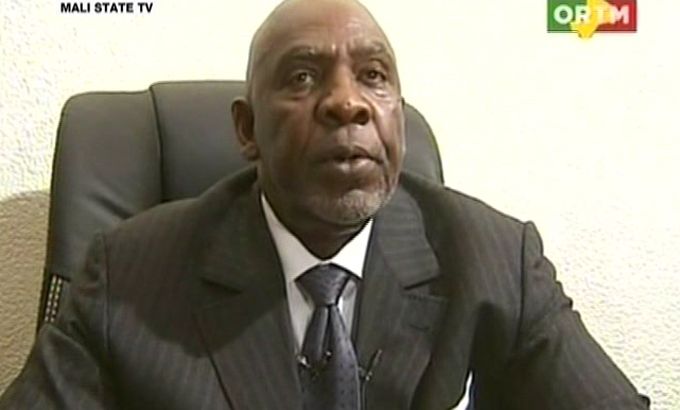Mali’s president names new prime minister
Civil servant appointed less than 24 hours after former PM resigns under pressure from soldiers linked to March coup.

Mali’s interim president, Dioncounda Traore, has named a new prime minister to replace Cheick Modibo Diarra, who quit under pressure from former coup leaders.
Diango Sissoko, a longtime civil servant, was appointed on Tuesday, less than 24 hours after Diarra announced his resignation on state television after being arrested as he tried to leave the country for France.
The former coup leaders are opposed to foreign military intervention to drive out Islamists occupying the northern half of the country while Diarra has called for UN backing of such a move.
| MALI CRISIS |
|
March: Military officers, led by Amadou Sanogo, depose President Toure, accusing him of failing to deal effectively with the rebellion. April: Tuareg rebels declare independence in the north as the government loses control of the region. A civilian interim government is formed, but the coup leaders remain influential. May: Military leaders say they have foiled a counter-coup attempt by supporters of the ousted president. November: African Union backs plan by regional bloc ECOWAS for military operation to recapture the north. UN is debating conditions for backing the operation. |
Bakary Mariko, a spokesperson for the group of soldiers who seized power in a March 21 coup, told France 24 television that Diarra’s resignation was “not a new coup d’etat”.
Mariko said Diarra was arrested as he tried to leave the country after “inciting trouble” and was put under house arrest.
The interim president said a new government would be formed by the end of the week.
UN condemnation
The UN Security Council condemned Diarra’s arrest and renewed a threat to impose sanctions against those hampering “constitutional order”.
The Security Council said the action contravenes repeated UN calls for the Malian military to stop interfering in the west African nation’s transition.
The 15-nation body stressed its “commitment to authorising as soon as
possible the deployment of an African-led international support mission in
Mali”.
France is drawing up a resolution giving a mandate to an international force. But negotiations have been prolonged by US opposition to sending just an African-led force to Mali..
Diarra had been the interim prime minister since April when the army handed power back to civilians.
Call for elections
Cissoko told the AFP news agency that his priorities were to regain control of the north from Islamists and organise a general election.
“The priority is the recovery of the north and the organisation of elections…. I want to create a government of national unity,” he said.
The US condemned the latest developments, with state department spokeswoman Victoria Nuland saying: “We condemn this act by the military junta and insist that it halt its continued interference in Malian political affairs and government.”
Nuland said the events illustrated “the need to get as quickly as possible to free and fair elections, ideally by April 23rd or as soon as it’s technically feasible.”
Jim Terrie, a former senior analyst with the International Crisis Group, a think-tank, told Al Jazeera that the prime minister had quit due to pressure from those behind the coup.
“I think it’s a way of saying to the prime minister and the interim president – those civilian aspects of the current government – that ‘we’re still in control,'” Terrie said from Sydney, Australia.
For several weeks, tension has been mounting between the soldiers who led Mali’s coup and Diarra.
Last weekend, Diarra organised a demonstration calling for a UN resolution to back a planned military intervention to retake Mali’s north from armed groups.

